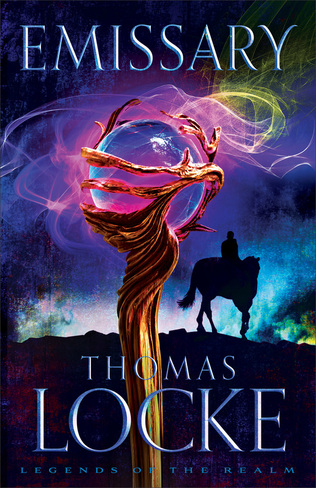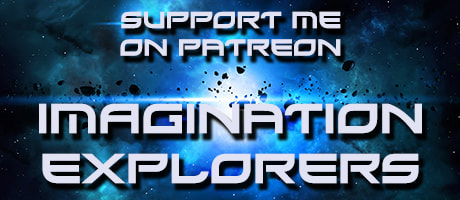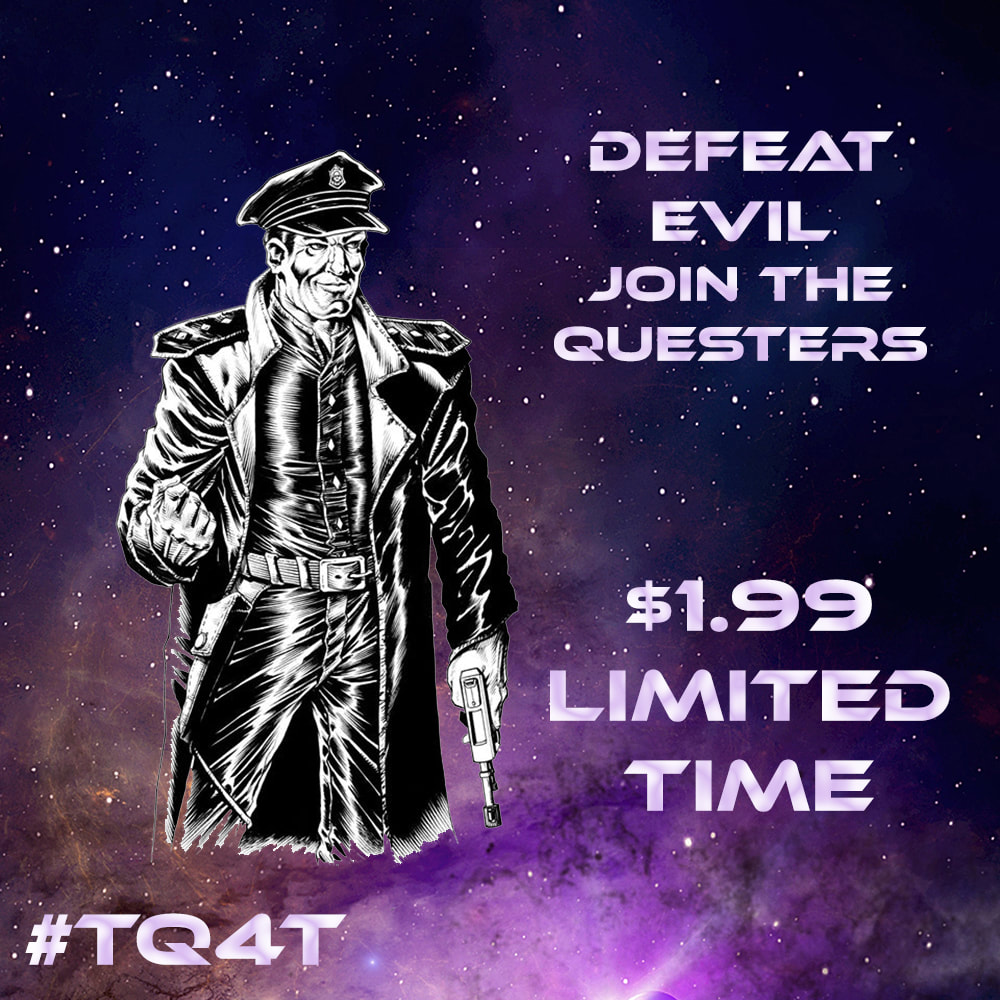 Interview by Brock Eastman from 2014 Featuring Legends of the Realm A joyful smile and youthful enthusiasm greets you when meeting Davis Bunn. We sat to talk about his writing, when with an ecstatic smile he asks, “Would you like to hear about my two new series?” A fan and author of sci-fi and fantasy myself, how could I resist? He explained at the time, this was the first interview in regards to these books and that I’d have to sit on the interview until now, so here it is. The two new series written under the pen name, Thomas Locke, are “Legends of the Realm” and “Fault Lines” releasing in 2015. And so Davis Bunn and I sat and discussed our mutual appetite for these two genres and his series that would fill them with light and hope. He explains that when he grew up he had a passion for science fiction and fantasy books, but of late he’s become increasingly distressed about the growing darkness that predominates sci-fi and fantasy these days. “Last year I had an epiphany about what had been lost in fantasy in particular,” Bunn says. He clarifies, “This isn’t so much the case with science fiction, because it is a relatively new thing, so it doesn’t have the same legacy.” He explains fantasy has been around since the Greeks, but the amount or authors writing the classical structure and books of that structure being published has shrunk. When people hear ‘epic fantasy’ they automatically think it’s a long book with many pages, but Bunn points out that the Hobbit is a relatively short book, yet it is an epic fantasy. Epic fantasy follows the hero’s journey and that’s what makes it such, not a large word count. Bunn explains, “The hero’s journey is about the dilemma that the character faces inside (internal quest) as a reflection of the dilemma the character faces on the outside (eternal quest). The only way they will arrive at a positive climax is if the main character learns the definition of right action, right vision, and right moral structure.” Bunn smiles as he gathers his next thoughts, it energizes me and causes me to want to hear more. He has this gift for explaining the depths of his passion for writing, that you draw knowledge and excitement from as he reveals the inside workings of his art form to you. Bunn begins again, ”A year and a half ago there was a real feeling of being impacted by an invitation to do something about the change in styles.” Simultaneously he had been talking about this issue in literature with a dear friend who is the head of the largest publisher in Italy. He decided then that he was going to try to right a classical fantasy for the modern reader. He started by taking the heroic structure and built the classical fantasy around the idea of a contemporary suspense. Davis explains about this first book, Emissary, “The story is not contemporary suspense, but the writing style is so that it has quick description, strong point of view, and two very powerful central characters that are inexplicably bound together long before they ever meet. With a dilemma that gradually grows to the point that either they learn what they need to learn or the world is in great peril.” He stops and thought I wouldn’t have guessed it possible, his eyes get brighter and his smile larger, “I had such a great time, It was a ball, I had such a great time (writing Emissary.)” And though Bunn is a long established author with more than 8 million copies in print, finding a publisher was bit harder than he expected. “I didn’t know at the time, this is so far away from what I normally write.” But he loved the book and the genre so much he actually started writing the sequel before placing the series with a publisher. But then he was struck with a new idea, one based around the same core moral construct, so he stopped writing the sequel and moved to this next project. In the end he had a completed fantasy novel and a completed science fiction novel. He clarifies that, “Its what is called near time science fiction.” This brand of sci-fi is set in the contemporary world, but includes an area of cutting edge scientific research or in some cases like, the movie battle for LA, an alien invasion. The advantage for near time sci-fi is that it’s not sold in the science fiction section of the bookstore, but the mainstream fiction shelves. Davis points to one of his (and mine) all time favorite authors, Michael Crichton's Jurassic Park (the first one only.) The world was now, but the science was cutting edge and resulted in a change to what exists at this time and place. So in June of 2013 Davis was sitting on two completed novels one sci-fi and one fantasy, with no publishing home. He chuckles, “They were just orphans, little globules, of electronic data sitting in my computer. Just lonely lost diamonds and I was so pleased with them, thought they were incredible.” He showed them to a couple of his publishers, but they thought he was nuts. The stories were so far away from the writing that his fans looked to him for. Then Revell stepped up and decided to take the books, with two conditions. One, the books would come out under a pen name and Davis Bunn would not be attached to the physical book in any way, only on the web would the connection be known. Second, he had to write 2 books a year, 1 sci-fi and 1 fantasy, with 6 books total. The fantasy books would come out each January and the near-time-sci-fi would come out each August. He explains that these books are not overtly Christian books, while they contain nothing that would turn a Christian reader away, they will appeal to a much broader audience, much like Lord of the Rings has. Indeed the fantasy, Emissary, has a Tolkienesque heroic structure, while Trial Run is a mainstream near time sci-fi. I asked Bunn to explain more about the six books. Would the sci-fis be connected to each other and the fantasies be connected to each other, or would they all be individual novels? He explained that all have a central theme and central characters, but each story brings in new characters and places, the question asked in each book is different. Again he mentions, Michael Chriction, as an example. “The problem with the sequel to Jurassic Park (Lost World),” he begins, “was that it asked no new questions.” His books will be different, each asking a new question to be solved. For example, Trial Run, will ask the question, “What if we arrive at the time where privacy became a myth, what happens?” After all, we live in the time of Snowden and the NSA data mining. Lastly, I wanted to know what his expectation for his fans adapting are? He explains while many he hopes will enjoy these new books, he does expect to engage with a younger new audience that his other works have not appealed to. He will also continue to write other evangelical family friendly fiction under Davis Bunn.
0 Comments
Leave a Reply. |
Follow meArchives
May 2024
Categories
All
|







 RSS Feed
RSS Feed